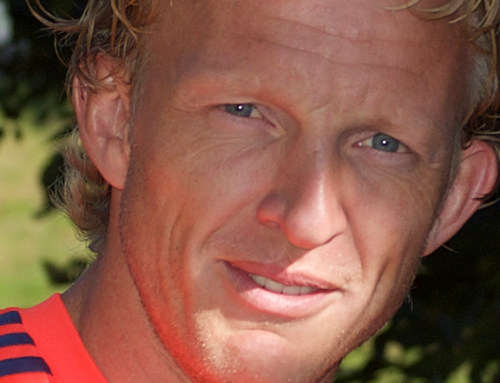‘Who wants to help a person who asks for help?’, (almost) all hands go up. ‘Who asks for help easily?’, almost no one hands go up. For quite some years, this is how it goes in our workshops, all over the world. I too struggled with asking for help for a long time, and I tend to gradually learn it more in baby steps.
Last Monday, I asked for help via a Facebook post. One in which I wondered how I could get a Christmas tree back home, all by myself. My former colleague Koen responded and offered his help for Tuesday morning. And that’s how a beautiful tree was acclimating in my shed a few hours later.

Weak, lazy or ignorant?
So, why is asking for help so hard? We tend to have many, mostly negative, thoughts about it. ‘What do other people think of me when I ask for help?’ That I am weak, lazy or ignorant, probably?’, for example. Often just the opposite is true. Many people feel honored and consider it a gift if they can help someone. It makes them happier, and there is even some scientific evidence that it could possibly help them to live longer:
#1. Offering help makes happy
Offering your help is volunteering. Research shows that the more people volunteer, the happier they are. Researchers from the London School of Economics found that offering your time, attention and talents feels like a reward:
When you give to others, your body and mind behave the same way they would if you had received something from them. Happy people also tend to give more; thus, an upward spiral of happiness occurs.
#2. Helping fulfills you
Helping people both boosts your self-confidence and adds meaning to your life, Vanessa King, author of Ten Keys to Happier Living, explains in her TEDx Talk. The opposite is also true, she says: ‘Happy people offer more aid.’ Another vicious spiral of happiness.
#3. Helping is healthy
Helping people (voluntarily) is good for your health. It possibly even helps you to live longer. Not only you, but also the one you are helping. Receiving help, and being thankful for that, likewise makes happy. Besides, it has positive physical and physiological effects. It improves your immune system and night’s rest. It also lowers your blood pressure, stress level and reduces the risk of a heart attack. Please note: offering help is even slightly better for your health than just receiving it.
#4. Helping out increases chances of success
Positive emotions, like joy and happiness caused by giving, increase your likelihood of success. When you experience positive emotions, your perception becomes better. You also become more open to other people, information and ideas, and seek for more chances and opportunities. These feelings also better enable you to learn and to change things. This theory, developed and tested by American professor in Psychology Barbara Fredrickson, is called Broaden and Build.
My personal experience with both asking and offering help: great things occur, with an even faster and better result. Many thanks for your help, Koen! And for the amazing conversation on the way to and from the Xmas tree. #grateful
Are you curious about Koen’s experience? Read about it in his blog.

Will 2017 be your best year ever?
In January 2017 we will launch the brand new program Happier New Year. Do you want to start 2017 in a fantastic way, and end it even better? Both at work and in private? Less stress and more happiness in your life? Then join us! Here’s your chance to co-determine how this blended program, that unites the best of online and offline learning and helps you to create your happiest year ever, will look like!







Leave A Comment